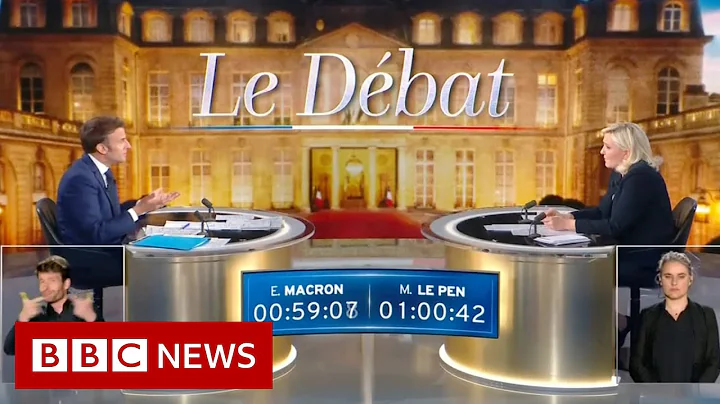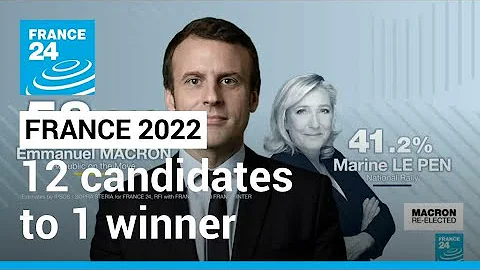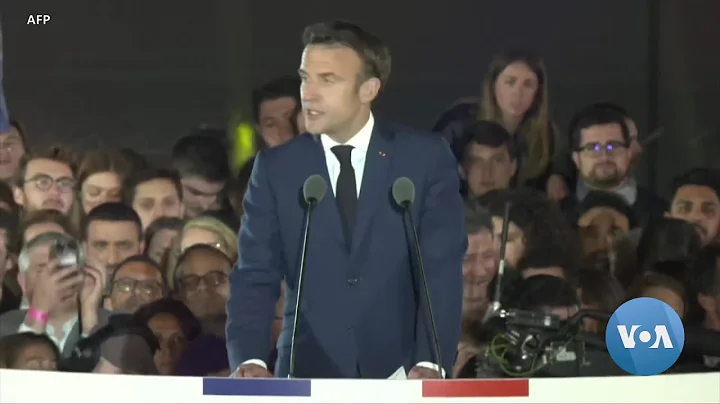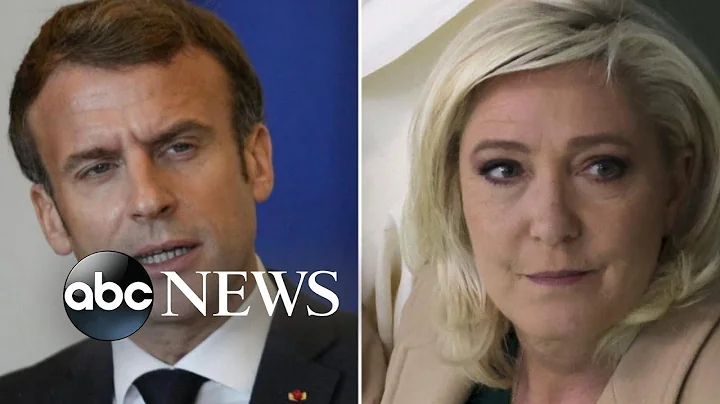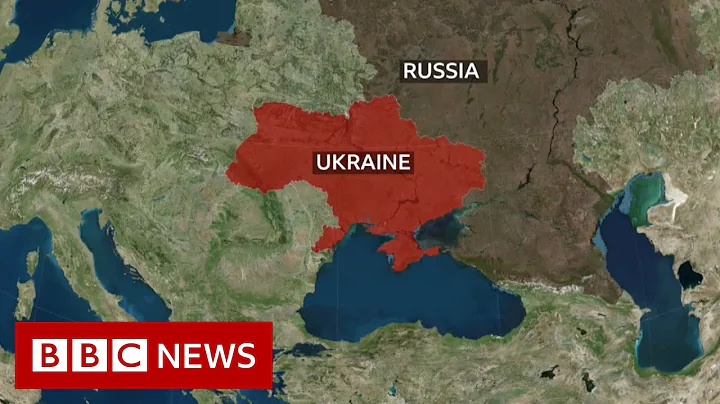Author: Shen Xiaoquan (Senior Researcher of Chinese Think Tank, Researcher of Xinhua News Agency World Issues Research Center)
Source: Chinese Think Tank Public Account
html In June, France held the five-yearly election of members of the National Assembly, that is, the French legislative election. Macron President Macron's ruling party "Together!" suffered a disastrous defeat and lost its "absolute majority" status in parliament. This is a major political setback for Macron, who has just been re-elected as president. His second presidential term will be will be filled with more obstacles and challenges.

Macron was re-elected as the French president in April this year. From the perspective of the French constitutional system, there is an inherent logic in holding the legislative election immediately after the presidential election, which is to allow the elected president to take advantage of the victory in the presidential election to make the ruling party in power. Obtain the status of an absolute majority in the new National Assembly. With the support of this "absolute majority" in the Assembly, the president's smooth governance is guaranteed. Therefore, Macron is determined to win. He has made full organizational preparations before this legislative election. The "Republic March Party" he leads (will be renamed "Ennahda Party"), his ally, the centrist "Democratic Party" of former Education Minister Beru Movement" and the "Horizon Party" formed the "Together!" ruling party campaign alliance with the aim of retaining an absolute majority in parliament.
However, the election results were unexpected, and the ruling party coalition lost the key "absolute majority". The French National Assembly has a total of 577 seats, with a minimum of 289 seats for more than half. In the last parliament, Macron’s ruling party won 350 seats, but in this parliament, it only won 245 seats, 105 fewer than the previous term, and 44 seats short of the minimum of 289 seats for more than half. This is the smallest relative majority achieved by a governing party in the French Parliament in the history of the French Fifth Republic. If the ruling party fails to achieve an absolute majority, many opposition parties may form an alliance to form a majority in the parliament, posing a threat to the ruling party. Macron will encounter more constraints in the next five years in power, and the implementation of his reform plan will also be more difficult.
The biggest beneficiary of this legislative election is the left-wing alliance headed by Mélenchon. This left-wing alliance, formed with the purpose of winning legislative elections, includes left-wing parties such as Mélenchon's "France Unyielding", the Green Party, the Socialist Party and the French Communist Party. It won a total of 133 seats and became the largest opposition party. The far-right National Alliance achieved a breakthrough in the election, with the number of seats in parliament soaring from 2 in the previous term to 89. The traditional right-wing Republicans and others only received 74 seats, falling from the largest opposition party in the previous parliament to fourth.

What will happen if Macron loses his "absolute majority"? According to the arrangement of the French political system, he had two choices. One is to immediately dissolve parliament and hold another election to obtain an absolute majority. However, considering that the legislative election has just been held, it is difficult for the ruling party to overturn the election results, and the president is faced with continuing to lose his absolute majority. Then the president will have no choice but to resign, so this option is too risky. The second is to establish a "coalition government" to govern together. A "coalition government" means that the ruling party and the opposition party jointly form a government, which also poses a great obstacle to the president. Macron is a politically active president and will never act as a "puppet" president. Both of the above options were rejected by Macron.
Macron chose the third way, which is to find new partners and ways of cooperation within the parliament. He began to contact various opposition parties to find ways to govern the country. On June 21 and 22, he met with opposition leaders or representatives, including right-wing Republican leader Jacob, the far-right National Alliance's Le Pen , and representatives of the left-wing alliance. Macron said in a speech on television on the evening of the 22nd that French political forces must "learn together to govern and legislate in different ways" and that all parties need to "compromise." He called on the opposition parties to break away from political confrontation. He also said that the opposition parties are prepared to promote progress on major issues such as cost of living, employment, energy, climate and health.
Macron proposed the ruling party's course of action in parliament. First, it is to cooperate with other parties to expand the ruling alliance to gain seat advantages. Second, it is to "discuss one matter at a time" when legislating and win the support of the majority of members one by one. Judging from the current situation in parliament, both approaches proposed by Macron are possible, but of course the resistance is not small.
The traditional right-wing Republican Party follows neoliberal ideas in economic governance; Macron is politically centrist. Although he claims to be "neither left nor right," his last five-year presidential term shows that his reform ideas are quite close to those of the right-wing Republican Party. Therefore, there is a basis for cooperation between the two parties. The Republican Party has 60 or 70 seats in the parliament, and in cooperation with the ruling party, it will be able to form an absolute majority. This is also an opportunity for the Republican Party. Currently, the Republican Party only ranks fourth in the parliament and is far less influential than the left-wing alliance. Once it cooperates with the ruling party and forms an absolute majority, its worth will increase rapidly. Of course, as of now, this is still just a hypothesis. When Macron met with Republican Jacob, the two sides did not reach consensus on this cooperation plan. Jacobs said the Republicans would not create obstacles and create political gridlock, but they would not take the approach of signing an agreement with the president. He said senior Republicans would discuss it.
Some comments believe that even if the Republican Party cannot form an alliance with the ruling party, it can still get the support of Republican lawmakers in the "one issue, one discussion". The Republican Party has similar ideas to Macron on major policies such as retirement reform, so the Macron government may reach an agreement with the Republican Party when the relevant bills are passed in parliament. According to Macron’s plan, the new government’s bill on strengthening people’s purchasing power should be submitted to the National Assembly for discussion in August this year. This will be a test for Macron’s five-year term.
Macron still has an opportunity to take advantage of in parliament, that is, there are cracks in the left-wing alliance headed by Mélenchon. The purpose of forming this alliance is to win the legislative election. Once it wins, it will fall apart. The parties forming the left-wing alliance include the traditional left-wing Socialist Party and the French Communist Party, as well as the radical "Unyielding France" and the Green Party that focuses on environmental protection. Although they are all It belongs to the left, but its focus is different and it lacks a common political goal. Although it has formed the largest opposition party in the parliament, it is only an alliance within the parliament and not a party.
For Mélenchon, the victory in the legislative election failed to strengthen the centripetal force of the left-wing alliance. On the contrary, allies such as the French Communist Party, the Green Party and the Socialist Party have the tendency to drift away. Mélenchon proposed the formation of a left-wing coalition parliamentary group after the legislative election, but it was immediately rejected by the leaders of the Green Party and the Socialist Party. As a result, the Left Alliance has no practical significance in the new parliament. Although it is known as the largest opposition party, each left-wing party in the alliance still has its own parliamentary group and independent political decision-making power, and is not under the command of the Left Alliance. As a result, the largest opposition party will be in name only, and the threat to the ruling party will be relatively weakened.
As for the far-right National Alliance, it is still bargaining with the ruling party. Le Pen’s proposition of increasing people’s purchasing power when running for president is the most appealing. This is also the focus of the Macron government, so there is room for cooperation between the two parties.
It can be said that in this legislative election, Macron’s ruling party suffered a major setback and a new pattern was formed in French politics. However, if Macron handles it properly, the situation will not be completely out of control as the media imagined. Macron will also There is a chance, but his second term as president will be more difficult than the first.



